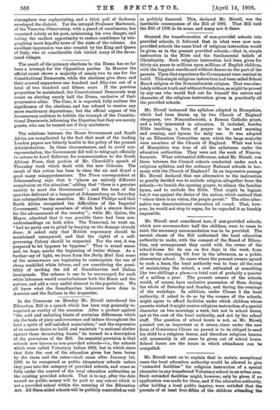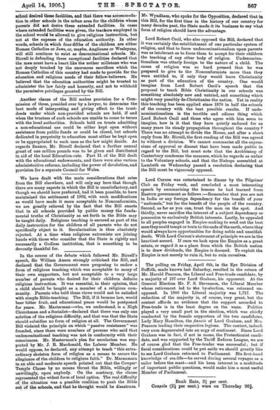Mr. Birrell went on to explain that in certain exceptional
cases the local education authority would be allowed to give "extended facilities" for religious instruction of a special character in any transferred Voluntary school in an urban area. Such extended facilities might, however, only be given if an application was made for them, and if the education authority, after bolding a local public inquiry, were satisfied that the parents of at least four-fifths of the children attending the school desired these facilities, and that there was accommoda- tion in other schools in the urban area for the children whose parents did Not desire these extended facilities. In cases where extended facilities were given, the teachers employed in the school would be allowed to give religious instruction, but not at the expense of the education authority. In other words, schools in which four-fifths of the children are either Roman Catholics or Jews, or, maybe, Anglicans or Wesleyans, will still continue to exist as denominational schools. Mr. Birrell in defending these exceptional facilities declared that the man must have a heart like the nether millstone who was not deeply touched by the enormous sacrifices which the Roman Catholics of this country had made to provide for the education and religious needs of their fellow-believers. He believed that the education authorities might be trusted to administer the law fairly and honestly, and not to withhold the permissive privileges granted by the Bill.







































 Previous page
Previous page